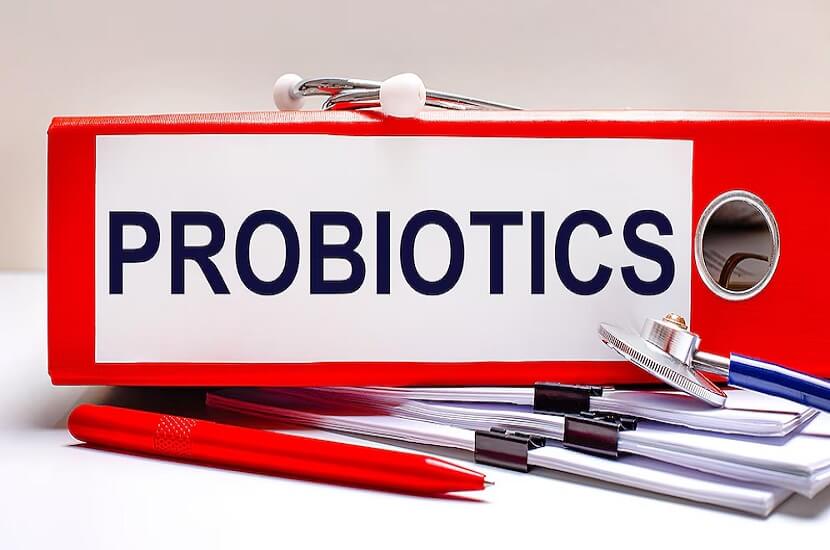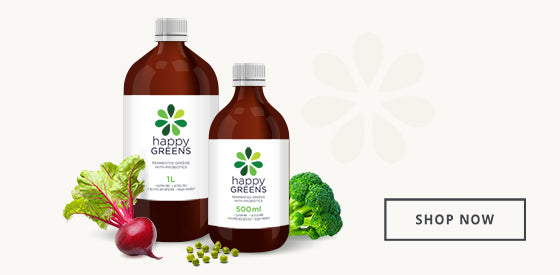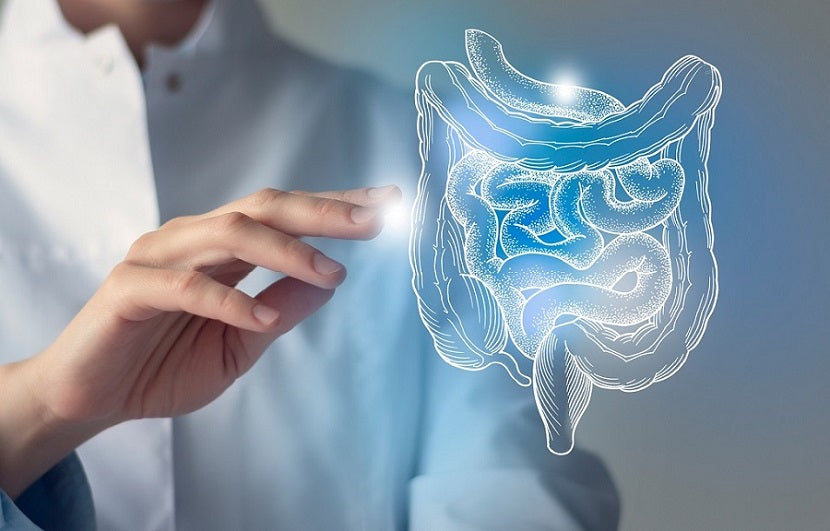What is Bloating?
Bloating is a common and uncomfortable sensation characterized by a feeling of fullness, tightness, or swelling in the abdomen. It usually results from overeating, food intolerances, or the accumulation of gas in the digestive tract.
However, bloating can also happen in women suffering from oestrogen dominance. This can lead to fluid retention and weight gain around the belly.
Can Probiotics Help Reduce Bloating?
When gas accumulates in the stomach, it suggests that there is dysbiosis. Dysbiosis is an imbalance of bad bacteria living in the digestive tract. The way to restore balance and prevent fermentation is by consuming probiotics.
Probiotics are live microorganisms that improve the microbiome when consumed in adequate amounts. These beneficial bacteria play a crucial role in the breakdown of food, absorption of nutrients, and suppression of harmful pathogens. Probiotics can also reduce inflammation within the gut, further relieving bloating and discomfort.
Probiotic foods include kefir, sauerkraut, kimchi, miso, tempeh, and other fermented foods and drinks. Our Happy Greens & Happy Turmeric formulas both contain live probiotics.
How Do Probiotics Help Reduce Bloating?
There is good evidence that probiotic supplements help treat and resolve many digestive disorders. After all, most digestive issues can be linked to an imbalance of digestive flora—from travellers' diarrhoea to SIBO, Irritable Bowel Syndrome (IBS), and Inflammatory Bowel Disease (IBD).
Certain strains of probiotics have been shown to improve digestion and reduce gas production, thereby alleviating bloating symptoms. They include:
- Lactobacillus plantarum
- Lactobacillus acidophilus
- Lactobacillus rhamnosus
- Lactobacillus casei
- Bifidobacterium infantis
- Bifidobacterium breve
- Bifidobacterium lactis
Then there is Saccharomyces boulardii - while not a bacteria but rather a non-pathogenic beneficial yeast, it can also help reduce bloating by supporting a healthy gut environment and combating harmful pathogens.
There is a wealth of research that shows probiotic use:
- Promotes more rapid recovery from imbalances in your gut flora (such as after antibiotic use)
- Reduces symptoms of leaky gut
- Fight pathogens (harmful bugs) and their toxins
- Reduces the inflammation of the digestive tract associated with gut disorders
Can Probiotics Make Me Feel Worse?
It's important to note that the introduction of probiotics can sometimes cause temporary changes in bowel motions or discomfort as the gut adjusts to the influx of new bacteria. This adjustment period is typically short-lived, and benefits are often seen once the gut microbiome reaches a new equilibrium.
Can Probiotics Help with Gluten Intolerance?
Gluten intolerance, also known as non-celiac gluten sensitivity (NCGS), is a condition where individuals experience symptoms in response to consuming gluten, a protein found in wheat, barley, and rye, without having celiac disease or a wheat allergy.
Symptoms of gluten intolerance can vary but commonly include abdominal pain, bloating, gas, diarrhea, or constipation, as well as non-digestive symptoms such as headaches, fatigue, joint pain, and brain fog.
Unlike celiac disease, gluten intolerance does not cause damage to the small intestine. However, it can significantly impact an individual's quality of life, often requiring dietary adjustments to avoid gluten-containing foods.
Probiotics can offer benefits for managing symptoms of gluten intolerance, including bloating, by promoting a healthier balance of gut bacteria, reducing inflammation, and enhancing gut barrier function.
Specific probiotic strains like Lactobacillus rhamnosus and Bifidobacterium breve, for example, have been shown to improve gut health by decreasing gut permeability and modulating immune responses. This can lead to reduced bloating and other gastrointestinal symptoms.
Additionally, probiotics can aid in the digestion of gluten residues, further alleviating symptoms and improving overall digestive comfort for those with gluten intolerance.
Will Probiotics Help with IBS (Irritable Bowel Syndrome)?
IBS is a chronic gastrointestinal disorder characterized by a combination of symptoms that affect the large intestine. These include abdominal pain and cramping, gas, diarrhea, constipation, and alternating bowel habits. Bloating and stomach distension are the most common symptoms, manifesting as a feeling of fullness or swelling in the abdomen, often accompanied by excessive gas.
Interestingly research shows that in IBS patients, this bloating and distension is likely a hypersensitivity to gas pressure from abnormal abdominal wall reflexes.
Which Probiotics Help Symptoms of IBS
Lactobacillus plantarum
Studies have shown that Lactobacillus plantarum can reduce bloating and abdominal pain in IBS patients by improving overall symptom scores and reducing gas production.
Bifidobacterium infantis
Bifidobacterium infantis is particularly effective in reducing abdominal pain, bloating, and bowel movement irregularities. Clinical trials have demonstrated a significant reduction in bloating and abdominal distension in patients taking this probiotic compared to a placebo.
These probiotics help balance the gut microbiota, reducing inflammation and improving gut motility, thus alleviating common IBS symptoms like bloating and abdominal distension.
Our probiotic powder (Happy Digestion) formula contains Lactobacillus plantarum and other healing nutrients effective for addressing symptoms associated with IBS. We understand that IBS is complex, so we recommend that those who need more support connect with the naturopaths in our online clinic.
In Summary
Bloating is a common sensation characterized by fullness, tightness, or swelling in the abdomen, often caused by overeating, food intolerances, gas accumulation, or estrogen dominance in women.
Probiotics can help reduce bloating by addressing dysbiosis, restoring gut microbiome balance, and reducing inflammation. Effective strains include Lactobacillus plantarum, L. acidophilus, L. rhamnosus, L. casei, Bifidobacterium infantis, B. breve, B. lactis, and Saccharomyces boulardii.
These probiotics promote gut health by aiding digestion, reducing gas, and improving gut barrier function. This is beneficial for managing not only bloating but also gluten intolerance and IBS. However, an initial adjustment period may cause temporary changes in bowel motions or discomfort.
For complex conditions like IBS, consulting with one of the naturopaths in our team is recommended.












Leave a comment
This site is protected by hCaptcha and the hCaptcha Privacy Policy and Terms of Service apply.